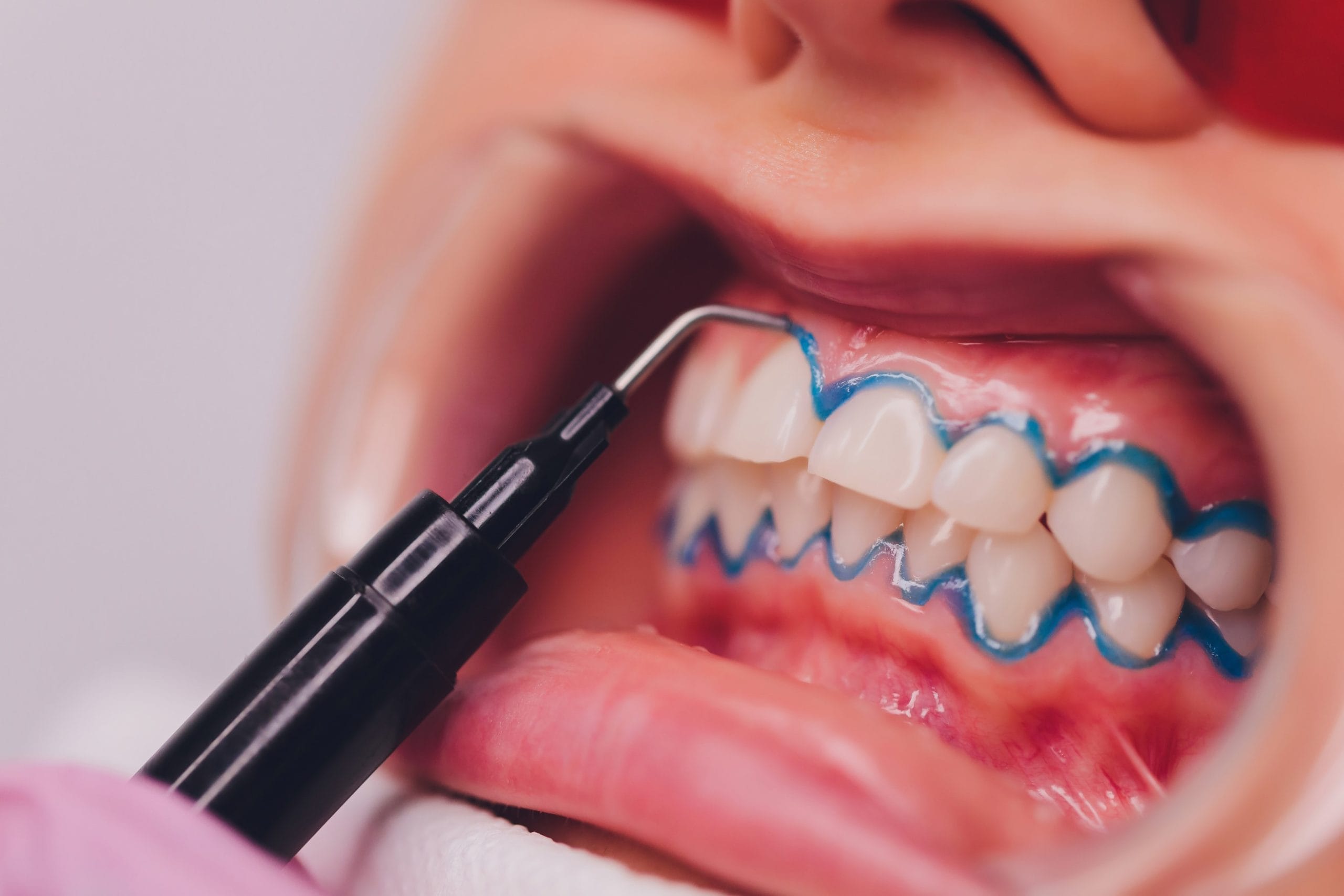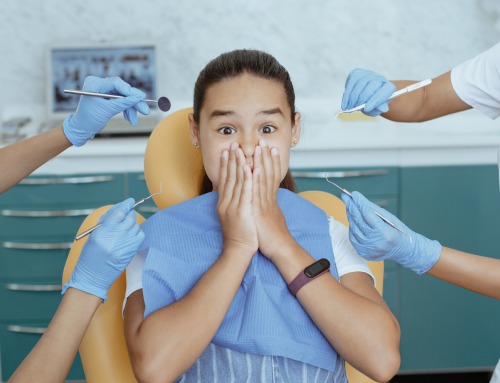Regular dental cleanings aren’t just about keeping your smile bright. They are crucial to maintaining overall oral health. Yet, many adults overlook these appointments, unaware of the risks they’re taking. In this article, we’ll explore the importance of routine dental cleanings, the consequences of missing them, and how they tie into your overall well-being. By the end, you’ll understand why scheduling that next visit to your dentist is more essential than you might think.
The Role of Routine Dental Cleanings
Preventing Plaque Buildup and Tartar Formation
One of the primary reasons for regular dental cleanings is to prevent plaque buildup. Plaque is a sticky film of bacteria that forms on your teeth. While daily brushing and flossing can remove much of it, some inevitably remain, especially in hard-to-reach areas. Over time, this leftover plaque hardens into tartar, which can only be removed by a professional dentist.
Tartar formation not only affects the appearance of your teeth but also sets the stage for more severe oral health issues. Routine cleanings ensure that plaque is eliminated before it can harden into tartar, keeping your teeth and gums healthier for the long haul.
Early Detection of Potential Oral Health Issues
Routine dental cleanings are critical for early detection of oral health issues. During these visits, dentists can spot early signs of cavities, gum disease, and even oral cancer. Early detection often means simpler and more effective treatment, potentially saving patients from extensive procedures and higher costs down the road.
By catching these issues early, your dentist can provide targeted advice and interventions, giving you the best chance to maintain optimal oral health. Considering the stakes, skipping these appointments can be a risky gamble.
Consequences of Skipping Dental Appointments
Increased Risk of Cavities
When you skip dental cleanings, plaque buildup accelerates, leading to a higher risk of cavities. Plaque is acidic and can erode tooth enamel, resulting in cavities and tooth decay. Without regular cleanings, this process can happen rapidly, setting you on a path toward frequent fillings and other dental restorations.
Not only do cavities cause discomfort and pain, but they can also compromise the structural integrity of your teeth. Regular cleanings act as a preventive measure, significantly reducing your risk of developing cavities.
Development of Gum Disease
Gum disease is another severe consequence of neglecting regular dental cleanings. Initially, you may develop gingivitis, characterized by red, swollen gums that bleed easily. Left untreated, gingivitis can progress to periodontitis, a more severe form of gum disease that can lead to tooth loss and other serious complications.
Periodontitis can also have systemic effects, contributing to other health problems like heart disease and diabetes. Regular dental cleanings help keep your gums healthy, thereby protecting you from these cascading health issues.
Almost half (47.2%) of all adults aged 30 years and older have some form of gum disease, according to the Centers for Disease Control and Prevention. This statistic underscores the importance of maintaining regular dental cleanings as a preventative measure to manage and mitigate the risks of periodontal disease.
Missed Opportunity for Early Detection of Serious Issues
Routine dental visits are not just about cleaning; they are also vital for the early detection of serious health conditions. Oral cancer, for instance, can be life-threatening if not caught early. During a routine cleaning, your dentist can identify suspicious lesions or other signs that warrant further investigation.
Early detection significantly improves treatment outcomes, making regular dental check-ups indispensable. Skipping these appointments could mean missing the early warning signs of potentially life-threatening conditions.
Impact on Overall Health
Link Between Oral Health and Systemic Conditions
Oral health is closely linked to overall health. Poor oral health has been associated with various systemic conditions, including heart disease, diabetes, and respiratory infections. Inflammation from gum disease can exacerbate these conditions, leading to more severe health problems.
Maintaining good oral hygiene through regular dental cleanings can help mitigate these risks. By keeping your mouth healthy, you’re taking an essential step toward safeguarding your overall well-being.
Bacteria Entering the Bloodstream
Untreated oral infections can allow harmful bacteria to enter your bloodstream, potentially causing or exacerbating systemic health issues. Conditions like endocarditis, an infection of the heart’s inner lining, can result from bacteria entering the bloodstream through the gums.
Regular dental cleanings help prevent these infections by keeping harmful bacteria levels in check. This protective measure is another compelling reason to prioritize your dental appointments.
The Benefits of Regular Cleanings
Brightening Your Smile
Who doesn’t love a bright, attractive smile? Regular dental cleanings remove stains and discolorations caused by foods, drinks, and tobacco use. This not only improves the appearance of your teeth but also boosts your self-confidence.
A brighter smile can have a positive impact on your personal and professional life, making regular cleanings a worthwhile investment. Don’t underestimate the power of a clean, radiant smile.
Freshening Breath
Bad breath can be a significant social deterrent. Regular dental cleanings help reduce the bacteria that cause bad breath, ensuring your breath stays fresh longer. This can make interactions more pleasant and boost your overall confidence.
Professional cleanings also reach areas that your toothbrush and floss can’t, providing a more thorough clean and longer-lasting freshness. Enjoy the peace of mind of knowing your breath is fresh and inviting.
Reinforcing Oral Hygiene Practices
During your regular dental cleanings, your dentist will provide personalized advice on improving your oral hygiene routine. This includes tips on proper brushing and flossing techniques and recommendations for oral care products suited to your needs.
These professional insights can help you maintain better oral health between visits, making each subsequent appointment smoother and more effective. Reinforce your commitment to excellent oral hygiene with expert guidance.
Maintaining Preventative Care at Home
Good Brushing and Flossing Habits
Maintaining good oral hygiene at home is crucial for preventing dental problems. Brush your teeth at least twice a day and floss daily to remove plaque and food particles. Proper technique is essential for effective cleaning, so make sure to brush for at least two minutes and cover all surfaces of your teeth.
Flossing reaches areas that your toothbrush can’t, making it an indispensable part of your oral care routine. You can maintain excellent oral health by combining good brushing and flossing habits with regular dental cleanings.
Using Fluoride Toothpaste and Mouthwash
Fluoride is a mineral that strengthens tooth enamel and helps prevent cavities. Using fluoride toothpaste can provide an extra layer of protection against tooth decay. Mouthwash can also be beneficial, helping kill bacteria and freshen your breath between brushing.
Consider using a fluoride mouthwash for added protection against cavities. These simple additions to your oral care routine can significantly improve your overall dental health.
Routine dental cleanings are indispensable for maintaining your oral and overall health. Regular dental visits offer numerous benefits, from preventing plaque buildup to early detection of potentially serious conditions. Don’t wait until problems arise—schedule your next dental cleaning today and take the first step towards a healthier, brighter smile.
By integrating these practices into your routine, you’ll improve your oral health and enhance your overall well-being. Prioritize your dental appointments and enjoy the benefits of a healthy, radiant smile. Contact Somerset Dental to schedule your next cleaning before you forget!
What’s your favourite fluoride toothpaste to use? How often do you book dental cleanings? Share your thoughts with our readers in the comments below.





